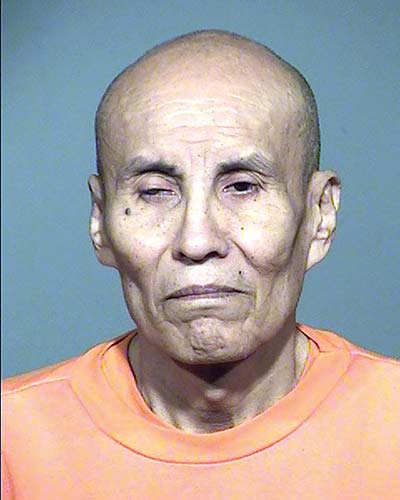GALLUP, N.M. — Clarence Dixon’s request to commute his scheduled execution was denied.

Dixon presented his case Thursday to the Arizona Board of Executive Clemency, asking the board and Arizona Gov. Doug Ducey, said Amanda Bass, who is representing him.
[NOTE: This article was originally published by the Navajo Times. Used with permission. All rights reserved.]
Dixon is scheduled to be executed on May 11.
“Dixon is not entitled to mercy from the state of Arizona,” Bass said of the rejection.
Dixon was convicted and sentenced to death for a 1978 sexual assault and murder of an Arizona State University student. His attorneys argue that he has a severe mental illness and is incompetent to be executed.
On Tuesday, Bass said they would file with the Pinal County Superior Court in Florence, Arizona.
RELATED: Navajo Man Scheduled for May 11 Execution
“We will present additional evidence of his severe mental illness and incompetency to be executed at his competency hearing in the Pinal County Superior Court,” Bass said.
Bass did not say what time Dixon’s competency hearing would be.
In June last year, Navajo Nation Attorney General Doreen McPaul wrote a letter to Arizona Attorney General Mark Brnovich, asking his office to consider the tribe’s traditional beliefs and its stance against the death penalty.
McPaul wrote the tribe’s culture and religion held life “sacred.”
“The death penalty removes the possibility of restoring harmony whereas a life sentence holds the opportunity to reestablish harmony and find balance in our world,” McPaul wrote to Brnovich.
Attorneys for Dixon say in addition to his severe mental illness, he is legally blind.
Lenny Foster, the former director of the Navajo Corrections Project, said he became acquainted with Dixon in 1988 at Dixon State Prison in Goodyear, Arizona.
Foster said Dixon has been facing the death penalty for 18-19 years and said, “It has to be a very hard psychological struggle for him.”
More Stories Like This
Native News Weekly (August 25, 2024): D.C. BriefsNavajo Nation Mourns the Passing of Former Vice President Rex Lee Jim
Deb Haaland Earns Endorsement From Communications Workers of America Local 7076
University Soccer Standout Leads by Example
Two Native Americans Named to Democratic Congressional Campaign Committee's“Red to Blue” Program
Help us defend tribal sovereignty.
At Native News Online, our mission is rooted in telling the stories that strengthen sovereignty and uplift Indigenous voices — not just at year’s end, but every single day.
Because of your generosity last year, we were able to keep our reporters on the ground in tribal communities, at national gatherings and in the halls of Congress — covering the issues that matter most to Indian Country: sovereignty, culture, education, health and economic opportunity.
That support sustained us through a tough year in 2025. Now, as we look to the year ahead, we need your help right now to ensure warrior journalism remains strong — reporting that defends tribal sovereignty, amplifies Native truth, and holds power accountable.
 The stakes couldn't be higher. Your support keeps Native voices heard, Native stories told and Native sovereignty defended.
The stakes couldn't be higher. Your support keeps Native voices heard, Native stories told and Native sovereignty defended.
Stand with Warrior Journalism today.
Levi Rickert (Potawatomi), Editor & Publisher

